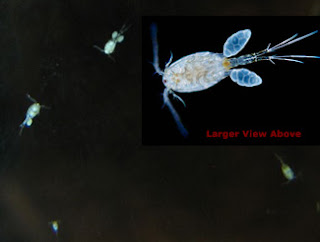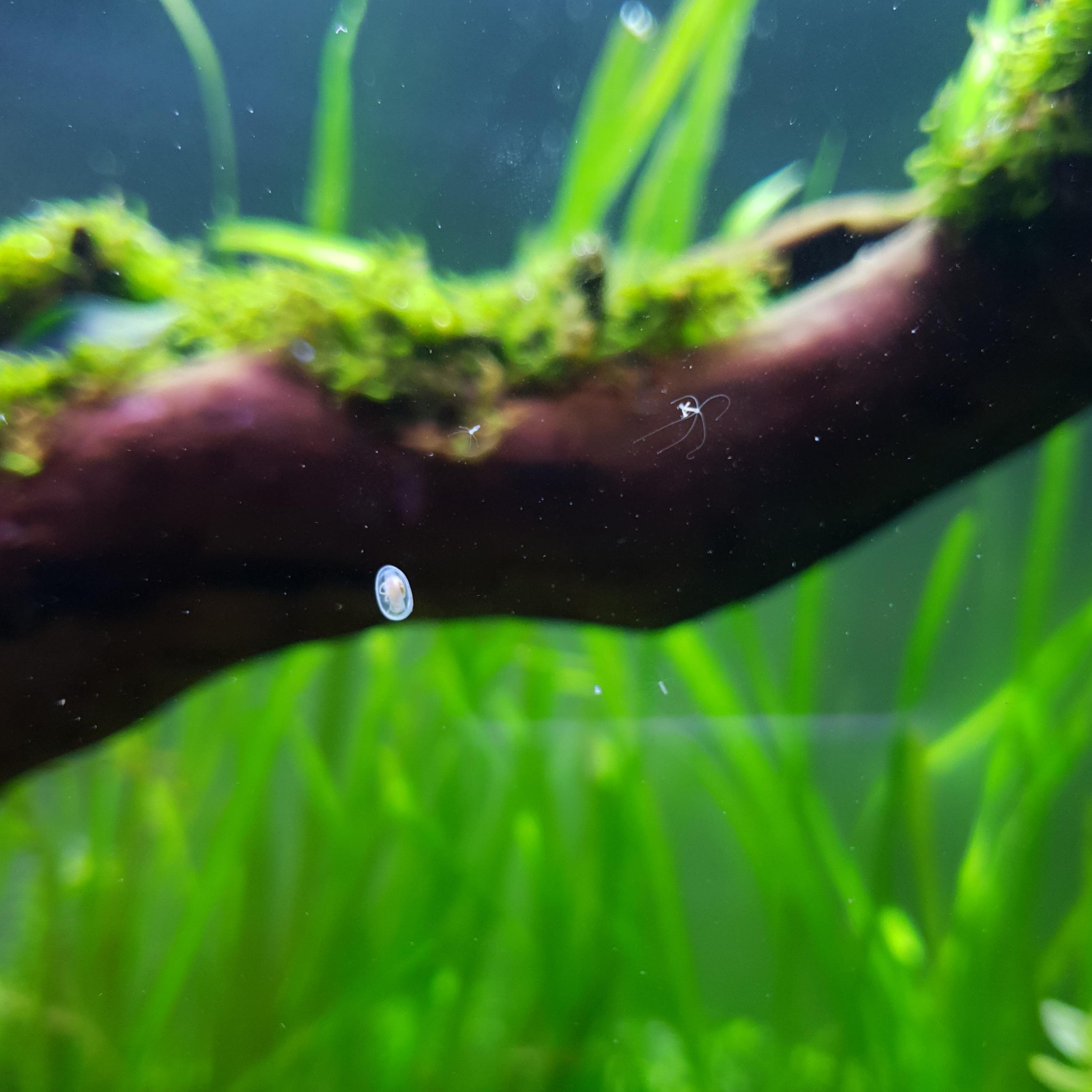Originally posted on May 19, 2023 @ 4:00 pm
Last Updated on 2 months by admin
If you’re a proud owner of a freshwater aquarium, you may be wondering what creatures you can add to the tank to keep it healthy and thriving. One such creature that has gained popularity in recent years is the copepod. But are copepods really good for freshwater aquariums? Let’s dive in and explore the benefits and potential drawbacks of adding these tiny creatures to your aquatic ecosystem.
Copepods are small, crustacean-like creatures that are found in both saltwater and freshwater environments. In the wild, they play an important role in the food chain, serving as a primary food source for many larger aquatic creatures. But in a freshwater aquarium, copepods can offer a number of benefits, from improving water quality to providing a natural food source for fish and other inhabitants. However, it’s important to understand the potential risks and drawbacks of adding copepods to your tank before making a decision.

Are Copepods Good for Freshwater Aquariums?
If you’re an aquarium enthusiast, you’ve probably heard of copepods. They are small crustaceans that are often used as live food for fish. However, many freshwater aquarium owners wonder if copepods are good for their tanks. In this article, we will explore the benefits and drawbacks of adding copepods to freshwater aquariums.
What are Copepods?
Copepods are small, aquatic crustaceans that are found in both freshwater and saltwater environments. They are typically between 1 and 2 millimeters in length and are an important part of the food chain in most aquatic ecosystems. Copepods are known for their fast reproduction rate, which makes them an excellent source of live food for fish.
Benefits of Copepods in Freshwater Aquariums
There are several benefits of adding copepods to freshwater aquariums. Here are some of the most significant advantages:
- Provide a Nutritious Food Source – Copepods are a great source of nutrition for fish and other aquatic animals. They are high in protein, omega-3 fatty acids, and other essential nutrients.
- Natural Aquarium Cleaners – Copepods can help keep your aquarium clean by consuming algae and other organic matter. They also help break down waste products, which can reduce the risk of harmful bacteria growth.
- Boosts Aquatic Ecosystem – Copepods are an important part of the food chain in aquatic ecosystems. Adding them to your aquarium can help create a balanced ecosystem and promote a healthy environment for your fish.
Drawbacks of Copepods in Freshwater Aquariums
While copepods offer several benefits, there are also some potential drawbacks to consider before adding them to your freshwater aquarium:
- May Overpopulate – Copepods are known for their fast reproduction rate, which means they can quickly overpopulate your aquarium if not kept in check. This can lead to an imbalance in your aquarium’s ecosystem and cause harm to your fish.
- May Introduce Diseases – If you are adding copepods from an outside source, there is a risk of introducing diseases to your aquarium. It’s essential to quarantine new copepods and monitor them for any signs of illness before adding them to your tank.
Copepods Vs Other Live Food Sources
When it comes to live food sources for freshwater aquariums, copepods are not the only option. Here are some other popular live food sources and how they compare to copepods:
Brine Shrimp
Brine shrimp are a common live food source for aquarium fish. They are relatively easy to raise and are available at most pet stores. However, they are not as nutritionally dense as copepods and can lead to digestive issues in some fish.
Worms
Worms, such as bloodworms and tubifex worms, are also popular live food sources for aquarium fish. They are high in protein and other essential nutrients, but they can be difficult to raise and are not as readily available as copepods.
Conclusion
In conclusion, copepods can be an excellent addition to freshwater aquariums. They offer several benefits, such as providing a nutritious food source, acting as natural aquarium cleaners, and boosting the aquatic ecosystem. However, it’s essential to consider the potential drawbacks, such as overpopulation and disease transmission, before adding them to your tank. Ultimately, the decision of whether to add copepods to your freshwater aquarium will depend on your specific needs and preferences.
Frequently Asked Questions
Are you considering adding copepods to your freshwater aquarium? Here are some frequently asked questions about whether or not copepods are good for freshwater aquariums.
Question 1: What are copepods?
Copepods are tiny crustaceans that are commonly found in freshwater and marine ecosystems. They are an important part of the food chain and are often used as a food source for fish and other aquatic animals. Copepods are also a popular addition to many aquariums as they can help to maintain a healthy ecosystem.
While there are many different species of copepods, some of the most commonly used in aquariums include freshwater copepods, harpacticoid copepods, and cyclopoid copepods. These tiny creatures are often referred to as “pods” by aquarium enthusiasts.
Question 2: Are copepods good for freshwater aquariums?
Yes, copepods are generally considered to be a good addition to freshwater aquariums. They can help to maintain a healthy ecosystem by consuming algae and other organic matter. They can also serve as a food source for fish and other aquatic animals.
However, it is important to note that not all copepods are suitable for freshwater aquariums. Some species are better suited to marine environments and may not thrive in a freshwater tank. It is important to do your research and choose the right species of copepod for your aquarium.
Question 3: How do I add copepods to my freshwater aquarium?
There are several ways to add copepods to your freshwater aquarium. One common method is to purchase live copepods from a reputable supplier and introduce them to your tank. Another option is to culture your own copepods using a starter culture and a suitable food source.
It is important to ensure that your aquarium is properly prepared before adding copepods. The water should be well-oxygenated and free of harmful chemicals or toxins. You should also ensure that there is enough food and shelter available for your copepods to thrive.
Question 4: How do I care for my copepods?
Caring for copepods is relatively simple. These tiny creatures require little maintenance and can thrive in a variety of conditions. However, it is important to ensure that they have a suitable food source and adequate shelter.
You should also monitor the population of copepods in your aquarium and adjust their numbers as needed. If the population gets too large, you may need to remove some of the copepods or introduce more predators to keep the ecosystem in balance.
Question 5: What are the benefits of adding copepods to my freshwater aquarium?
There are several benefits to adding copepods to your freshwater aquarium. These tiny creatures can help to maintain a healthy ecosystem by consuming excess algae and other organic matter. They can also serve as a food source for fish and other aquatic animals.
In addition, copepods can add to the overall diversity and complexity of your aquarium. Watching these tiny creatures swim and interact with their environment can be fascinating and rewarding for aquarium enthusiasts.

Cyclops. Freshwater Copepods. Water Fleas. Whatever You Call Them, The Fish Can Call Them Dinner!
In conclusion, copepods can be a beneficial addition to freshwater aquariums. They serve as a natural food source for many types of fish and can help to maintain a healthy ecosystem within the tank. However, it is important to ensure that the copepods are properly introduced and monitored in order to prevent overpopulation and potential harm to other aquatic life.
It is also important to note that not all copepods are created equal. Some species may be more suitable for freshwater aquariums than others, so it is important to do thorough research and consult with a professional before introducing them to your tank.
Overall, if you are looking for a way to enhance the health and vitality of your freshwater aquarium, consider adding copepods to your tank. With proper introduction and monitoring, these tiny creatures can make a big impact on the overall health and balance of your aquatic ecosystem.
